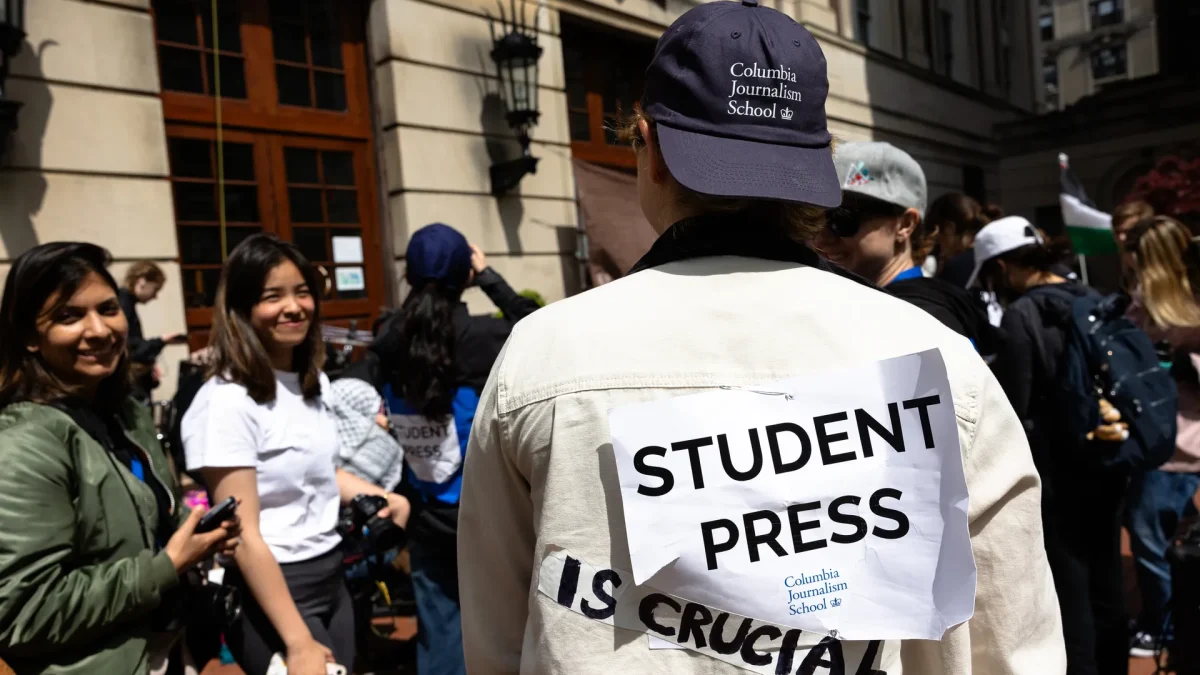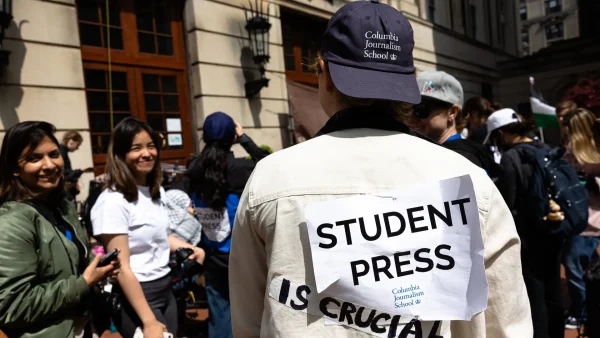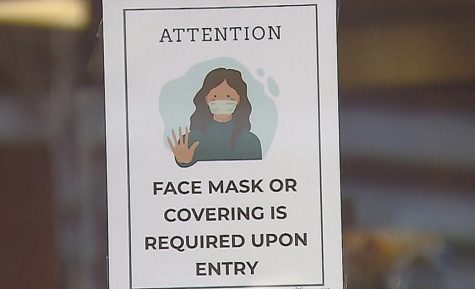Trans community needs visibility in entertainment
April 29, 2014
“Is there any transgender actor? To my knowledge — I don’t know one. I didn’t even think about it,” said “Dallas Buyers Club” director Jean Marc Valée, explaining why he did not cast a transgender actor in the role of a transgendered woman in the film. This embodies the ignorant attitudes within the entertainment industry toward transgender people and those who identify outside of the typical gender binary.
The Academy Award-winning feature film “Dallas Buyers Club” was released in November 2013. Supporting character Rayon is a transgender, HIV+ female living at the height of the AIDS epidemic. Critics and viewers alike found the movie to be groundbreaking and daring.
The Netflix Original Series “Orange is The New Black” (OITNB) premiered over the summer of 2013 to similar praise. OINTB depicts a transgender, or “trans,” inmate named Sophia.
These media portrayals of trans characters are many people’s first exposure to the issues and sometimes even the idea of a transgendered person. The LGBT organization GLAAD defines transgender as “An umbrella term for people whose gender identity differs from what is typically associated with the sex they were assigned at birth.” Cisgender refers to people who identify as the gender they were assigned at birth.
In the last year, the visibility of transgendered individuals has increased in the media. However, not all representation is created equal.
“I think that shows like ‘Orange is the New Black’ definitely have a better representation than things like ‘Dallas Buyers Club’ because ‘Orange is the New Black’ [uses] an actual trans woman actor,” explained senior Vincent Chadwick.
In “Dallas Buyers Club,” Rayon was played by Jared Leto, a heterosexual, cisgender man. The casting directors of “OITNB” took a more intelligent approach, casting transgender actor Laverne Cox to play Sophia.
Chadwick was very bothered by Leto’s casting: “It seemed to perpetuate the trope of the ‘man in the dress’ instead of an actual trans woman. I think it’s kind of disrespectful to have a cisgendered, heterosexual man playing a trans woman.” Rather than casting cisgender people for transgender roles, why don’t we just cast an actual trans person?
“Being trans is such a different experience and really intense. [Leto]… in absolutely no way can have the same experience or the same general feelings of a real trans woman,” said senior Anna Meier. Playing a trans person is not something you understand through character study. To successfully play a trans character and do them justice, the actor must also be transgender.
Casting a trans actor in a trans role – and yes, Mr. Valée, there are many – ensures an honest portrayal. Both Chadwick and Meier agree, we need to be giving more roles, especially for trans characters, to trans actors.
“I wouldn’t ever take a role that is intended for a person of color, or another marginalized identity. I would never take a trans woman’s role. I would be fine taking a trans guy role because I am a trans guy. I don’t feel bad about taking cis guy’s roles because who cares about them,” Chadwick said.
On the whole, trans people are underrepresented in mainstream media. Rayon from “Dallas Buyers Club” and Sophia from “Orange is the New Black” are the only two characters that come to mind when I think of trans characters in movies and TV.
Movies, TV, and also live theater allow individuals to learn about the experience of another person in a more intimate and empathetic way. By learning someone’s story it is easier to understand their motives and potentially trust someone. Having honest, impartial, representation reduces prejudice by familiarizing viewers with the experiences and hardships of others.
By featuring more trans characters, the entertainment industry has the opportunity to simultaneously educate viewers about trans experiences and struggles. In the case of Rayon in “Dallas Buyers Club,” casting a trans person would have significantly benefited the role because they could bring their own personal experiences to it.
In addition to the entertainment industry, it is imperative that everyone, cisgendered people especially, educate themselves on the experiences transgendered individuals. This allows them to be advocates for change and increased equality within their communities.
It is time for cisgendered people to push back against their privilege. Caucasian, heterosexual, male, and cisgendered actors like Leto need to turn down offers to play transgendered women. While some may argue that it is good that a transgender person was portrayed in the movie at all, we as viewers must demand better. Privileged cisgender actors must reject offers to play transgender people, privileged cisgender viewers must reject dishonest portrayals of trans women.
For many people feature films such as “Dallas Buyers Club” introduce them to the concept of transgendered individuals. It is imperative that we provide accurate representations of transgender experience. Allowing only transgender actors to play transgender roles ensures an accurate portrayal of that character’s experience as a transgendered person.
It is time for the cisgender community to acknowledge their privilege, in and out of the entertainment industry, to check their privilege and step aside.













